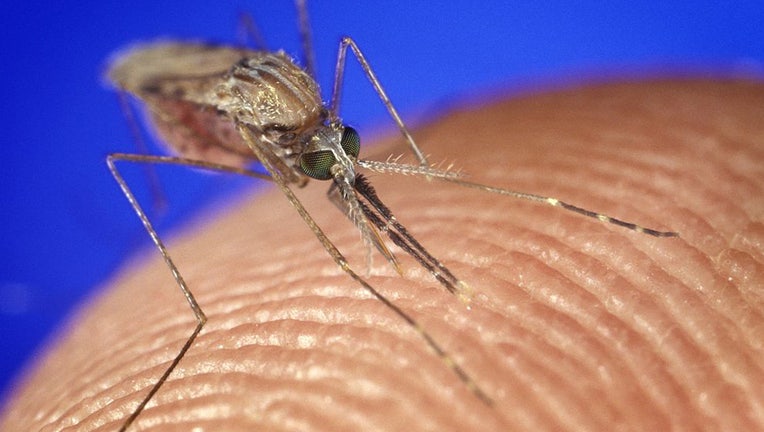West Nile virus detected in Wisconsin from blood donor, dead bird

File photo mosquito. (Photo by Smith Collection/Gado/Getty Images). (Getty Images)
MADISON (FOX 9) - Wisconsin health officials say mosquitoes are carrying the West Nile virus after a blood donor and dead bird tested positive for the virus in the state.
What we know
The Wisconsin Department of Health Services (DHS) said the West Nile virus was detected during a blood screening for a healthy donor in Washington County. However, it is not considered a human case of the virus because they never showed symptoms.
Additionally, the virus was detected in a dead bird from Chippewa County in western Wisconsin, but the officials did not say what caused the bird’s death.
The DHS said the virus' detection confirms that infected mosquitoes are present in the state and can transmit the virus to other people and animals.
"The first activity of West Nile virus this year in Wisconsin is a reminder that we still need to take precautions to prevent mosquito bites even as summer winds down, as the risk of West Nile virus continues until the first frost. While West Nile virus and other viruses spread by mosquitoes pose a risk to all Wisconsinites, people who have weakened immune systems are at higher risk for significant illness," said State Health Officer Paula Tran in a statement.
How does the West Nile Virus spread?
According to the DHS, a mosquito obtains the virus by feeding on an infected bird, and it can only be spread when an infected mosquito bites other humans, birds and animals.
Typical symptoms include fever, headache, muscle ache, rash and fatigue. In some rare cases, people can get seriously ill. However, about 80% of people who have the virus do not show symptoms.
The DHS added that occasional healthy blood donors may have the virus, but all donated blood is tested to ensure the virus does not spread.
Cases in Wisconsin
The DHS said it has been monitoring the spread of the virus since 2001 and there is an average of 18 reported illnesses in the state each year.
Cases are typically reported from June through October, but most people report being ill in August and September.
Tips to avoid mosquito bites
The best way to avoid getting the virus is to reduce your exposure to mosquitoes, but the DHS offered these other tips to protect your home and prevent being bitten.
DHS tips to avoid mosquito bites:
- Apply an insect repellent with DEET, picaridin, oil of lemon eucalyptus, or IR3535 to exposed skin and clothing.
- Prior to heading outdoors, treat clothing with permethrin; do not apply permethrin directly to skin.
- Consider rescheduling outdoor activities that occur during evening or early morning hours, when mosquitoes that spread WNV are most active.
- Wear long sleeves, long pants, and socks when outdoors to help keep mosquitoes away from your skin.
DHS tips to Mosquito-Proof Your Home:
- Prevent mosquitoes from breeding around your home by removing stagnant water from items around your property.
- Empty standing water that has collected in tin cans, plastic containers, flower pots, discarded tires, roof gutters, and downspouts.
- Turn over wheelbarrows, kiddie pools, buckets, and small boats such as canoes and kayaks when not in use.
- Change the water in bird baths and pet dishes at least every three days.
- Clean and chlorinate swimming pools, outdoor saunas, and hot tubs; drain water from pool covers.
- Make sure window and door screens are intact and tightly fitted to prevent mosquitoes from getting into your home.
- Trim or mow tall grass, weeds, and vines since mosquitoes use these areas to rest during hot daylight hours.

